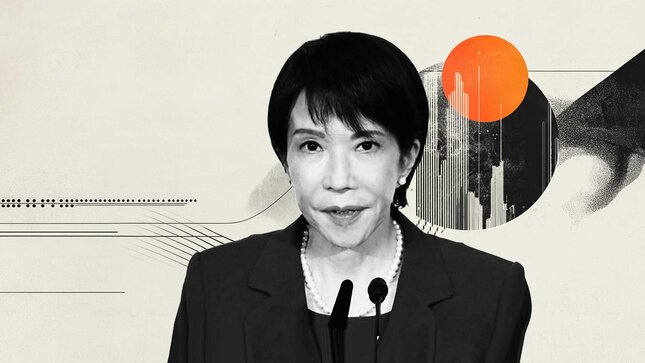The more you understand about mortgages and home equity lines (also known as HELOC) before you sign a mortgage contract the more you can save in interest, lenders fees, and other costs. As we have seen, an uneducated public can cause a WORLD of problems. It’s important to use professionals. It’s also important to be educated in today’s environment. So here are 5 things to consider when you’re looking at a mortgage.
1. Consider the source:
The internet is a great research tool, but there is also a lot of misinformation as well. We use over 30 different websites in the Professional Real Estate Class and I reinforce that where the data comes from is key. It’s also important to separate unbiased facts from marketing. This can be tricky.
The internet has some great tools, like online mortgage calculators, but be careful not to provide any personal information when using these tools. There are equal amounts of not-so-legitimate companies providing information as there are legitimate companies. Taking time to research and understand mortgage details is important; just remain skeptical of special deals and too-good-to-be true offers. Print information you want to act on as proof of what a company is offering so you can hold them to it.
2. How do mortgage professionals get paid and what you need to watch for?
Mortgage professionals and the organization they represent are paid by fees, often called points. It’s important to look for more than just the best interest and mortgage terms. You also want to work with a professional that will get the job done, anticipate what is needed and be honest with you about the process.
3. Know the REAL COST:
I alluded to this earlier. It’s not just the interest, but the total cost of borrowing that is vital to understand. Here are some questions to ask:
a) What will it cost to pay off the principal early?
b) What is the charge for setting up weekly or biweekly payments?
c) What is the charge if you switch back?
d) What is the cost of shifting from variable to fixed?
e) What is the total cost of discharging the mortgage if you sell the property? These are just a few of the questions you should ask about “other” costs.
The long-term implications of your mortgage are more important than a quarter-point difference in the interest rate. Banks and lenders do not make billions of dollars in profits by missing opportunities to charge fees and take bonuses. Buyer beware. They can also change policies and offerings anytime. Read the small print. That is where these fees and penalties are hiding.
4. Higher rates mean smaller mortgages:
As interest rates go up, the size of mortgage you qualify for will go down. Even if you are prepared to take on large debt, you may not be allowed to.
5. What is the difference between “pre approval ” vs. “pre-qualification?”
“Pre-qualification” is an estimate of borrowing power. It is a statement from your lender saying “based on your income, credit, & debt levels” you are qualified for a mortgage for “x” amount of dollars. This can be accomplished by a simple phone call to a lender. They should also run a credit report.
“Pre-approval” is likely to be a more formal process. Here you have actually completed the application with the lender, possibly supplied them with your income information, bank statements, W2’s, etc. The lender has asked about your employment & also runs a credit report. This is a more complete process. The lender should have run the application through an automated underwriting process.
Neither a ”pre-approval” nor a ”pre-qualification” are seen as absolute loan commitments. Lenders still need to look at property appraisals, verify information, and in many cases, re-check credit before agreeing to make a loan.
Getting a mortgage on any real estate is a HUGE commitment – do your home work, ask questions, and if you don’t get answers that are acceptable, move on.
My next online live Real Estate Class is coming up in August, hope you join me.
This content is intended to provide educational information only. This information should not be construed as individual or customized legal, tax, financial or investment services. As each individual's situation is unique, a qualified professional should be consulted before making legal, tax, financial and investment decisions. The educational information provided in this article does not comprise any course or a part of any course that may be used as an educational credit for any certification purpose and will not prepare any User to be accredited for any licenses in any industry and will not prepare any User to get a job. Reproduced by permission from OTAcademy.com click here for Terms of Use: https://www.otacademy.com/about/terms
Editors’ Picks

EUR/USD off highs, back to around 1.1900
EUR/USD keeps its strong bid bias in place despite recedeing to the 1.1900 zone following earlier peaks north of 1.1900 the figure on Monday. The US Dollar remains under pressure, as traders stay on the sidelines ahead of Wednesday’s key January jobs report, leaving the pair room to extend its upward trend for now.

USD/JPY bounces off lows, back above 156.00
USD/JPY is starting the week markedly on the defensive, sliding back toward the 155.50 area where it has met some decent contention for now. The move lower in spot follows FX intervention chatter after PM S. Takaichi scored a landslide win in Sunday’s election..

Gold picks up pace, retargets $5,100
Gold gathers fresh steam, challenging daily highs en route to the $5,100 mark per troy ounce in the latter part of Monday’s session. The precious metal finds support from fresh signs of continued buying by the PBoC, while expectations that the Fed could lean more dovish also collaborate with the uptick.

Crypto Today: Bitcoin steadies around $70,000, Ethereum and XRP remain under pressure
Bitcoin hovers around $70,000, up near 15% from last week's low of $60,000 despite low retail demand. Ethereum delicately holds $2,000 support as weak technicals weigh amid declining futures Open Interest. XRP seeks support above $1.40 after facing rejection at $1.54 during the previous week's sharp rebound.

Japanese PM Takaichi nabs unprecedented victory – US data eyed this week
I do not think I would be exaggerating to say that Japanese Prime Minister Sanae Takaichi’s snap general election gamble paid off over the weekend – and then some. This secured the Liberal Democratic Party (LDP) an unprecedented mandate just three months into her tenure.
RECOMMENDED LESSONS
Making money in forex is easy if you know how the bankers trade!
I’m often mystified in my educational forex articles why so many traders struggle to make consistent money out of forex trading. The answer has more to do with what they don’t know than what they do know. After working in investment banks for 20 years many of which were as a Chief trader its second knowledge how to extract cash out of the market.
5 Forex News Events You Need To Know
In the fast moving world of currency markets where huge moves can seemingly come from nowhere, it is extremely important for new traders to learn about the various economic indicators and forex news events and releases that shape the markets. Indeed, quickly getting a handle on which data to look out for, what it means, and how to trade it can see new traders quickly become far more profitable and sets up the road to long term success.
Top 10 Chart Patterns Every Trader Should Know
Chart patterns are one of the most effective trading tools for a trader. They are pure price-action, and form on the basis of underlying buying and selling pressure. Chart patterns have a proven track-record, and traders use them to identify continuation or reversal signals, to open positions and identify price targets.
7 Ways to Avoid Forex Scams
The forex industry is recently seeing more and more scams. Here are 7 ways to avoid losing your money in such scams: Forex scams are becoming frequent. Michael Greenberg reports on luxurious expenses, including a submarine bought from the money taken from forex traders. Here’s another report of a forex fraud. So, how can we avoid falling in such forex scams?
What Are the 10 Fatal Mistakes Traders Make
Trading is exciting. Trading is hard. Trading is extremely hard. Some say that it takes more than 10,000 hours to master. Others believe that trading is the way to quick riches. They might be both wrong. What is important to know that no matter how experienced you are, mistakes will be part of the trading process.
The challenge: Timing the market and trader psychology
Successful trading often comes down to timing – entering and exiting trades at the right moments. Yet timing the market is notoriously difficult, largely because human psychology can derail even the best plans. Two powerful emotions in particular – fear and greed – tend to drive trading decisions off course.

